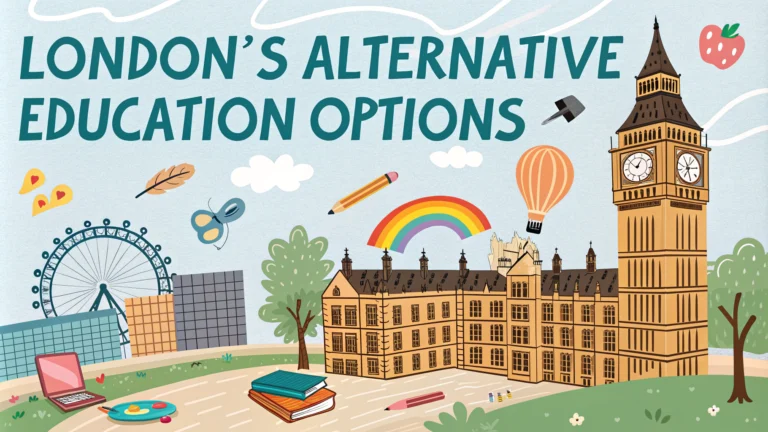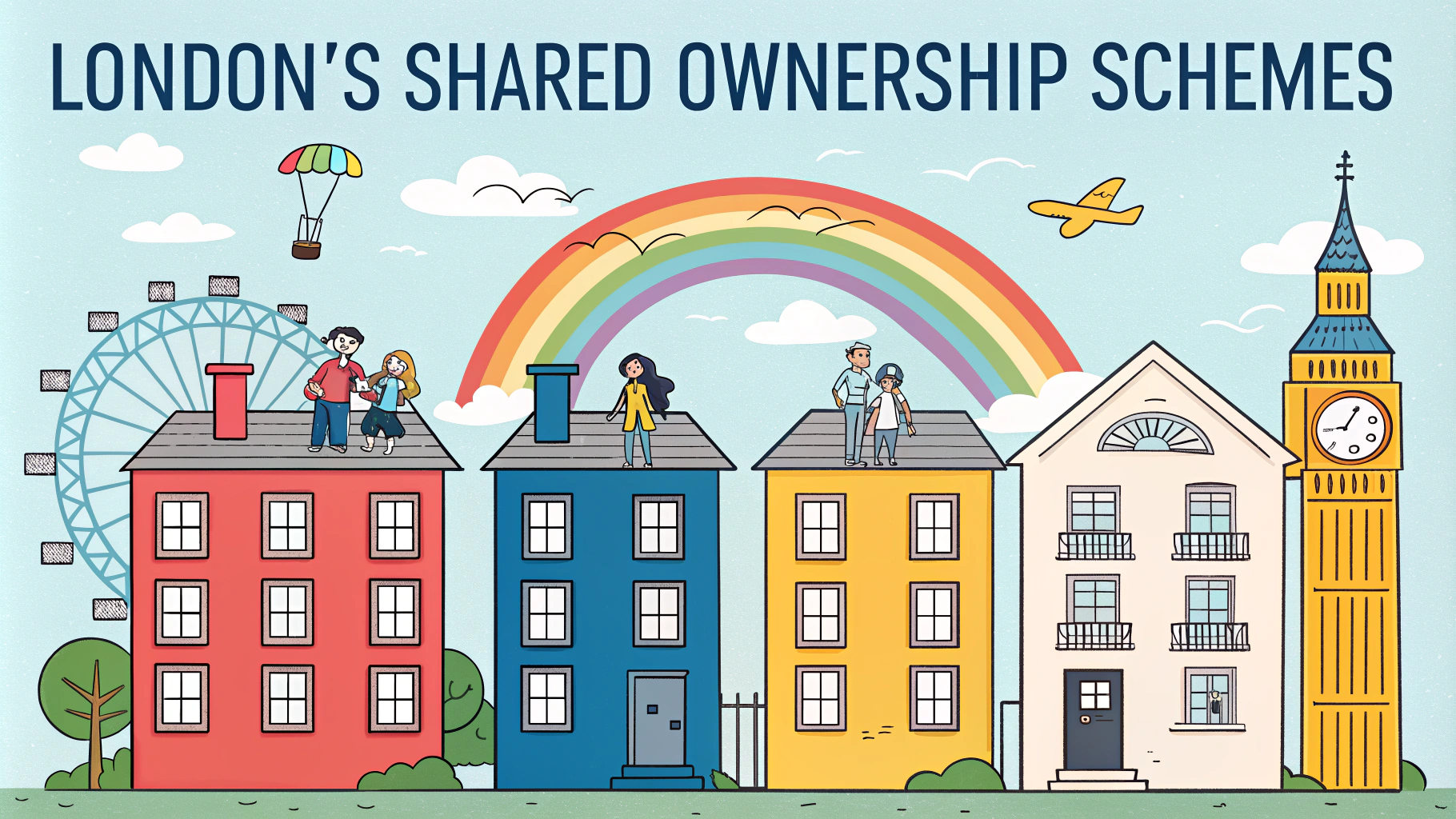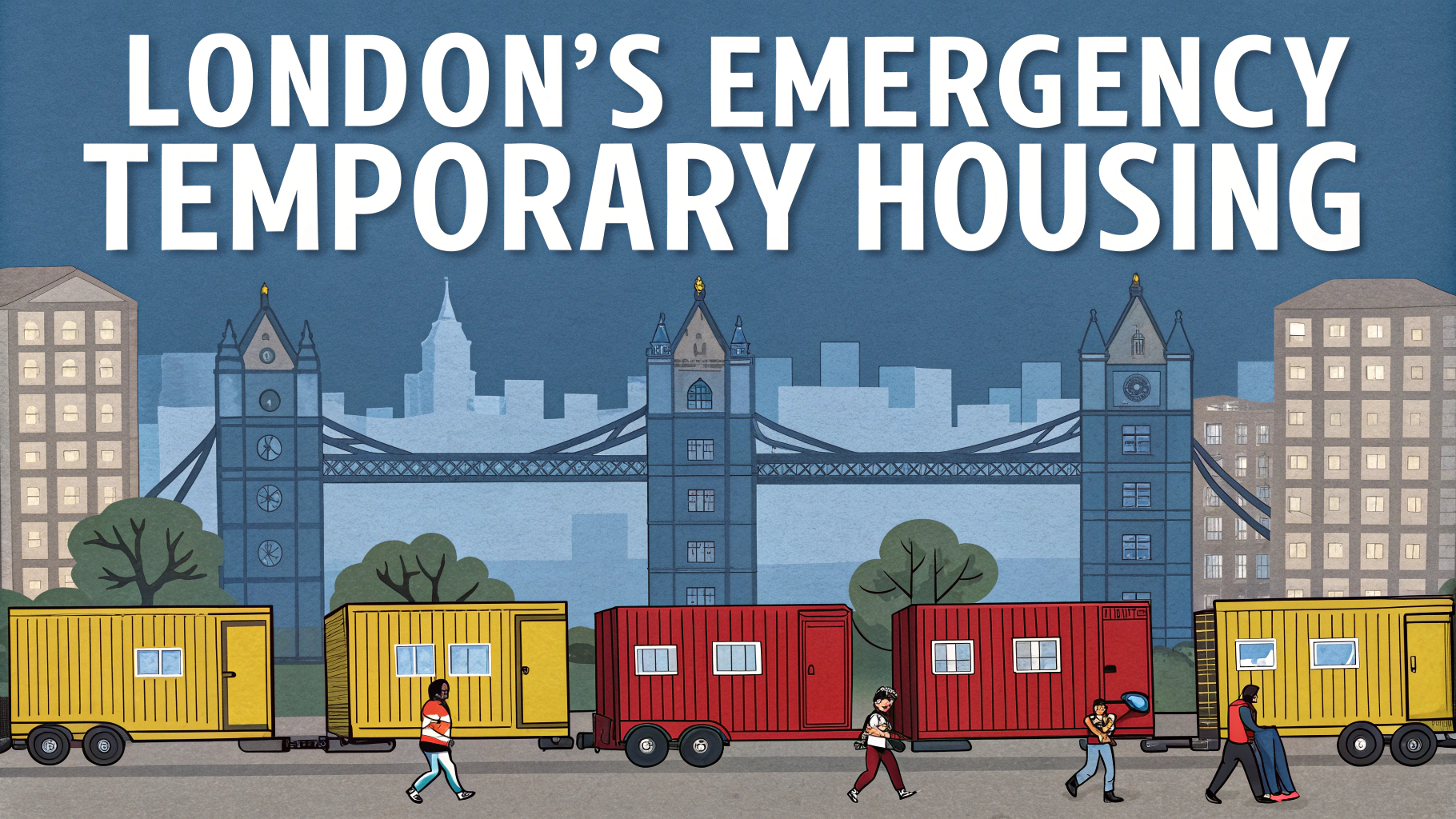London’s education landscape extends far beyond traditional schooling, offering diverse alternatives for families seeking different approaches to learning.
Alternative education options in London range from Montessori schools to forest schools, providing choices that align with various educational philosophies and learning styles.
Understanding these options helps parents make informed decisions about their children’s education, whether they’re moving to London or considering a change within the city.
Types of Alternative Education in London
- Montessori Schools: Child-led learning environments focusing on independence and practical skills
- Steiner Waldorf Schools: Emphasis on artistic expression and holistic development
- Forest Schools: Outdoor learning environments promoting nature connection and practical skills
- Democratic Schools: Student-led decision-making and self-directed learning
- Home Education: Personalized learning at home with parent or tutor guidance
Popular Alternative Schools in London
| School Name | Location | Type |
|---|---|---|
| Maria Montessori Institute | NW1 6XU | Montessori |
| London Steiner School | SW16 2EY | Waldorf |
| Into the Woods Nursery | N16 | Forest School |
Legal Requirements and Registration
Parents choosing alternative education must register with their local authority if removing a child from mainstream school.
Home educators in London need to ensure their child receives a suitable full-time education.
Alternative schools must be registered with the Department for Education and undergo regular inspections.
Financial Considerations
- Private Alternative Schools: £8,000 – £15,000 per year
- Forest School Sessions: £25 – £50 per session
- Home Education Resources: £500 – £2,000 per year
- Online Learning Platforms: £200 – £1,000 per year
Support Networks and Resources
Education Otherwise (www.educationotherwise.org) provides guidance and support for alternative education families.
The Home Education UK website offers resources and legal advice for home educators.
Local home education groups organize regular meetups and activities across London boroughs.
Making the Transition
- Research different alternative education approaches
- Visit potential schools or groups
- Connect with other families using alternative education
- Prepare necessary documentation
- Plan the transition timing carefully
Next Steps for Parents
Contact chosen schools or organizations directly to arrange visits and discuss enrollment options.
Join local alternative education networks through social media groups or community centers.
Schedule meetings with current alternative education providers to learn from their experiences.
Meeting Special Educational Needs
Alternative education settings often excel at accommodating children with special educational needs through:
- Flexible Learning Paces: Allowing children to progress at their own speed
- Individualized Attention: Smaller class sizes enabling personalized support
- Specialized Programs: Tailored approaches for different learning styles
- Therapeutic Elements: Integration of occupational therapy and sensory activities
Quality Assurance and Assessment
Alternative education providers maintain educational standards through:
- Regular Assessments: Monitoring progress using alternative evaluation methods
- External Validation: Partnerships with educational bodies and organizations
- Parent Involvement: Regular feedback and participation in educational planning
- Professional Development: Ongoing teacher training and certification
Technology Integration
Digital Learning Tools
- Virtual learning platforms
- Educational apps and software
- Online collaboration tools
- Digital portfolios for progress tracking
Building a Sustainable Educational Future
Success in alternative education requires commitment from all stakeholders:
- Community Engagement: Building strong networks of support
- Continuous Evolution: Adapting to changing educational needs
- Resource Sharing: Collaborating with other alternative education providers
- Long-term Planning: Ensuring sustainable educational pathways
Empowering Educational Choices
London’s alternative education landscape continues to evolve, offering families genuine choices in their children’s education journey. Understanding available options, requirements, and support systems enables informed decisions that align with each child’s unique needs and potential.
Success in alternative education comes through careful planning, strong support networks, and commitment to educational excellence. As these educational approaches gain recognition, they contribute to a more diverse and inclusive educational landscape in London.
Parents considering alternative education should take time to explore all options, connect with experienced families, and carefully evaluate their children’s needs before making this important educational decision.
FAQs
- What alternative education options are available in London?
London offers Montessori schools, Steiner/Waldorf schools, forest schools, democratic schools, international schools, homeschooling networks, and independent learning centers. - Do I need to register with local authorities if I choose to homeschool in London?
If your child has never attended a state school, there’s no legal requirement to register with local authorities. However, if you’re withdrawing from a state school, you must inform the school in writing. - Are alternative schools in London recognized by universities?
Yes, most alternative schools in London are registered with Ofsted and provide recognized qualifications like GCSEs, A-Levels, or International Baccalaureate (IB), which are accepted by universities. - What are the costs associated with alternative education in London?
Costs vary significantly, from free state-funded alternative programs to £15,000-£25,000 per year for private alternative schools. Montessori and Steiner schools typically range from £8,000-£15,000 annually. - Can I switch between traditional and alternative education systems mid-year?
Yes, it’s possible to switch between systems, but it’s recommended to do so at term breaks. Each school has its own admission policies and may require assessments. - What support is available for special educational needs in London’s alternative schools?
Many alternative schools offer specialized support for SEN students, including smaller class sizes, specialized teaching methods, and individual learning plans. Some schools specifically focus on neurodivergent students. - How do I find and evaluate alternative schools in specific London boroughs?
Contact local education authorities, visit the Independent Schools Council website, check Ofsted reports, and use the Alternative Education UK directory to find schools in your area. - Are there bilingual alternative education options in London?
Yes, London has several bilingual alternative schools, particularly French, Spanish, German, and Italian options, combining alternative pedagogies with language immersion. - What is the application process for alternative schools in London?
Most require school visits, student assessments, parent interviews, and registration fees. Popular schools often have waiting lists, so early application is recommended. - How does transportation work for alternative schools in London?
Unlike mainstream schools, many alternative schools don’t provide dedicated transport. Parents typically need to arrange private transport or use public transportation.








